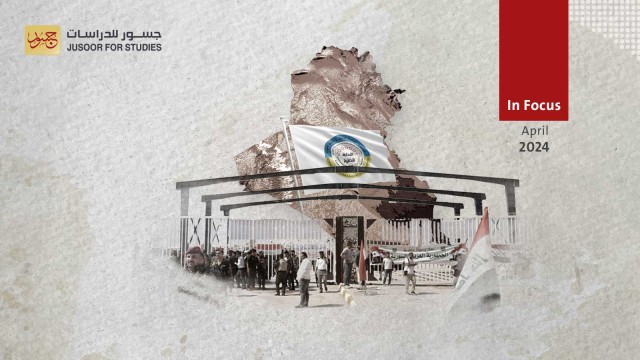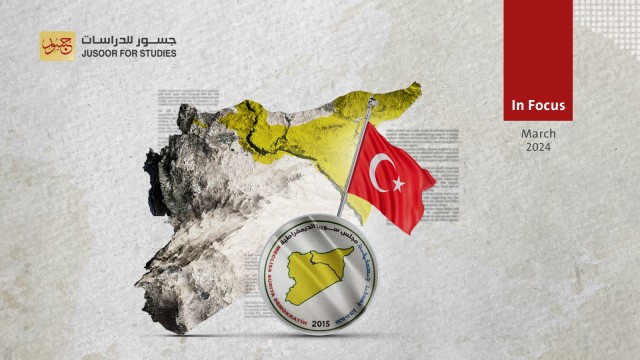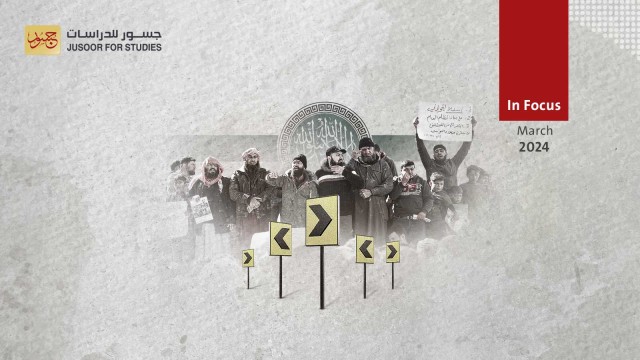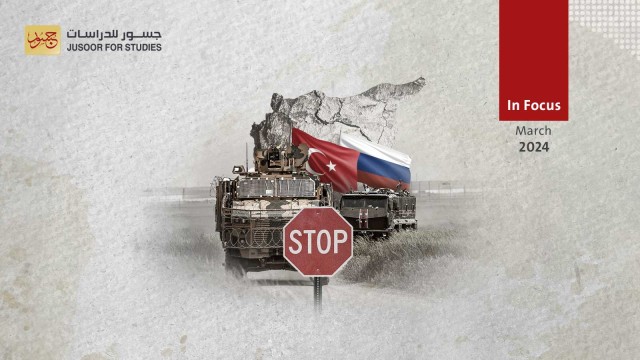The bombings of northwestern Syria: who are the perpetrators and why did they succeed?
In Focus | The bombings of northwestern Syria: who are the perpetrators and why did they succeed?
A new wave of explosions began targeting populated residential areas in northwestern Syria, as a booby-trapped car exploded in Afrin city on January 30, 2021, killing at least 6 civilians in addition to dozens wounded, followed the next day by two explosions: the first rocked the city of Azaz, north of Aleppo, also claimed the lives of 6 civilians, including children and women, and the second blast took place near the city of "Bza'a" in the Al-Bab area in northeastern Aleppo.
The car bombing, which occurred in the city of "Azaz" north of Aleppo on January 31st, took place near the cultural center building, of which the Syrian Interim Government takes as a headquarters, and civil society organizations meet inside.
It should be considered who stands to benefit from the assault in order the attackers to be traced; this could be achieved as follows:
1-Syrian Democratic Forces (SDF)
The security services in northern Aleppo have previously arrested cells working for the Syrian Democratic Forces and are involved in bringing car bombs into the Syrian National Army-held areas and facilitating their subsequent detonation.
The most recent of these cells was the group that was uncovered and its members were arrested as the National Army's Third Corps broadcast the cell member’s confessions in December 2020.
The "Syrian Democratic Forces" have a direct interest in destabilizing the regions of northern Syria, thus demonstrating Turkey's inability to control security in the areas it enters.
In addition, these terrorist acts may sometimes come as tit-for-tat security attacks in the context of responding to any Turkish moves in other regions, including the Turkish operations against the Kurdistan Workers Party (PKK) organization in northern Iraq and the response in Syria is conducted by the "PYD" organization that dominates the Syrian Democratic Forces (SDF), which is the Syrian arm of the PKK.
2) The Syrian regime
The regime also has a direct interest in destabilizing security in the northern region of Syria, and it is likely that it was involved in carrying out such explosions, especially in light of the availability of information about the entry of some car bombs that are detonated from the "Tal Rifaat" area north of Aleppo, which is controlled jointly by the Syrian regime and the PYD organization.
The Syrian regime may aim, in carrying out such attacks, to embarrass Turkey, and it is known that the Syrian regime opposes Turkish moves in the Syrian file, and the regime certainly is trying so hard to keep the areas outside its control not stabilized or a model that attracts people and investments, especially since the past recent months have witnessed a movement of smuggling people from the Syrian regime-controlled areas to the northwestern region under the control of the Syrian opposition passing through the areas of "Nubul" and "Al Zahraa" in exchange for payment of money.
It is possible to identify a number of factors that facilitate the occurrence of such explosions, namely:
1) The insistence on leaving the security file in the hands of the local factions that move without a central plan through which they may share information and tasks, and not shift to establishing a central body specialized in facing security challenges.
2) The lack of technical equipment and hardware needed to counter security breaches.
3) The economic reality and widespread unemployment and poverty, which facilitate the recruitment of local collaborators to carry out such attacks.
4) The presence of areas that witness bombings on the lines of contact, either with the Syrian regime or with the "Syrian Democratic Forces."
Unit of Analysis and Thinking - Jusoor for Studies








